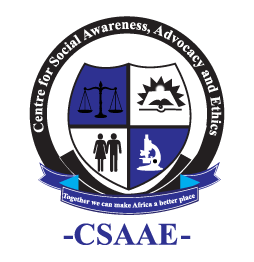As the 2019 thanksgiving celebrations in the United States come to an end, here are some thoughts on gratitude for youths. Since 2013, I have been working very closely with Nigerian youths especially undergraduates. My experience is that some youths may be losing the virtue of gratitude.
Gratitude is a virtue that must not be delayed, but how one expresses that virtue depends on the kind of favor received and the social status of the recipient. Undergraduates, for instance, are still students and so the society does not expect substantial material gifts as symbols of gratitude from them. This does not mean that undergraduates cannot show appreciation to those who help them in anyway including family members and friends.
During my high school and undergraduate days, we showed appreciation in various ways. As high school students we went to the farms to pick some precious fruits for parents, relatives and friends who showed us love. We picked “udara,” “nchichi,” and “uvene” for family members and friends who bought wears for us. We also washed dishes for teachers who paid extra attention to us in school and washed cars for relatives who bought Christmas and Easter clothing for us. We had no money to buy material gifts for these caring people, but we had the energy to wake up quite early in the morning to go pick “udara” for them. We had the time and energy to navigate through thick forests in search of “uvene” and “nchichi” for them. We had the time and the skills to wash dishes and cars for them. These nice family members and friends, most of whom lived in the cities, cherished these precious fruits which were scarce in the cities. They also felt so proud to have younger ones who cared to wash their cars and dishes. No doubt, these symbols of gratitude motivated them to show more kindness to us. As undergraduates, we bought beautiful thank you, Christmas and Easter cards for family and friends who gave us any form of help. We made ourselves available to them for all sorts of errands during holiday periods. We included names of those who contributed towards our education in our project appreciation pages and made sure we gave them copies of the project.
Today, some youths do no more than send a “thank you, Christmas or Easter” emoji to family and friends that care for them. Yes, we live in a digital age, but I tell you the inventors of digital cards still send hard copy “thank you, Christmas and Easter” cards. Family members and relatives know that it costs you nothing to forward a digital card to them. They hardly appreciate it. That they have not mentioned it to you does not mean that all is well. Recently, a colleague here in the United States told me that he sent N100,000.00 to his cousin in the university and all he got was a text message: “thank you uncle”. The uncle was not expecting him to mail a card to him, but he expected a telephone call to say thank you. Many youths do not know that a phone call is more valued by benefactors than a text message. Just as a “whatsapp call” is less valued by benefactors than a regular call.
It is not clear yet why some youths behave this way. Some people blame this behavior on poor family upbringing. Others think that the too much noise about rights, entitlements and privileges make some youths think that they are entitled to whatever help they get from family and friends. Well, nobody but parents may owe you anything and that debt expires once you turn eighteen. Therefore, whatever help you get from anyone, please find a meaningful way to say thank you. You may need the person again pretty soon!



